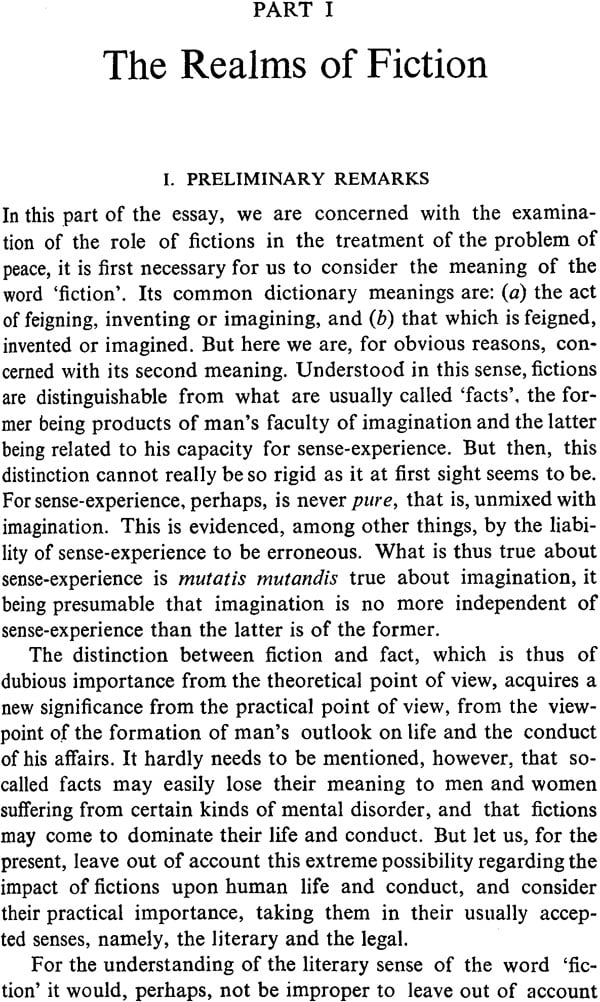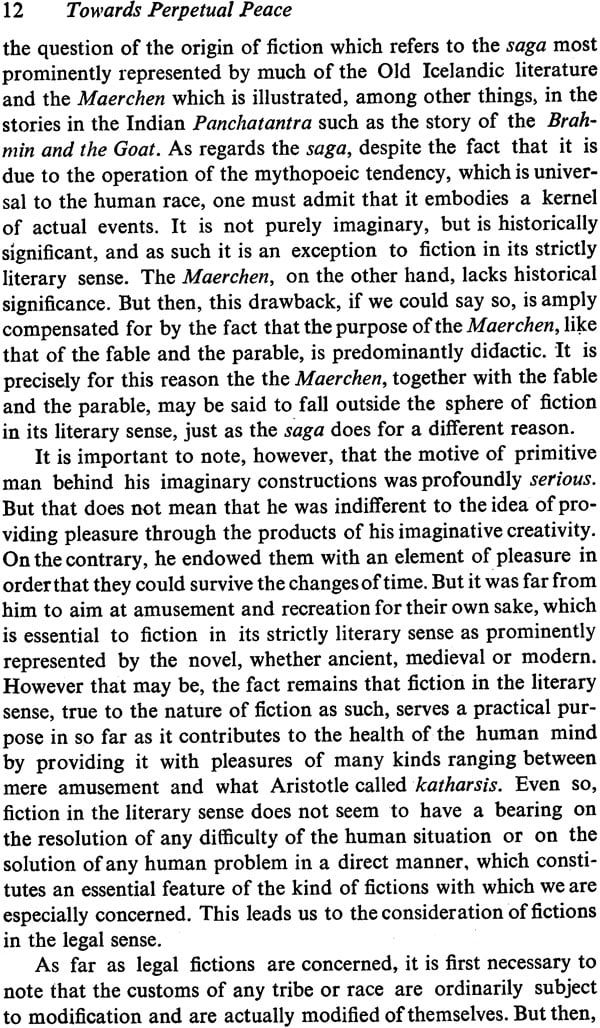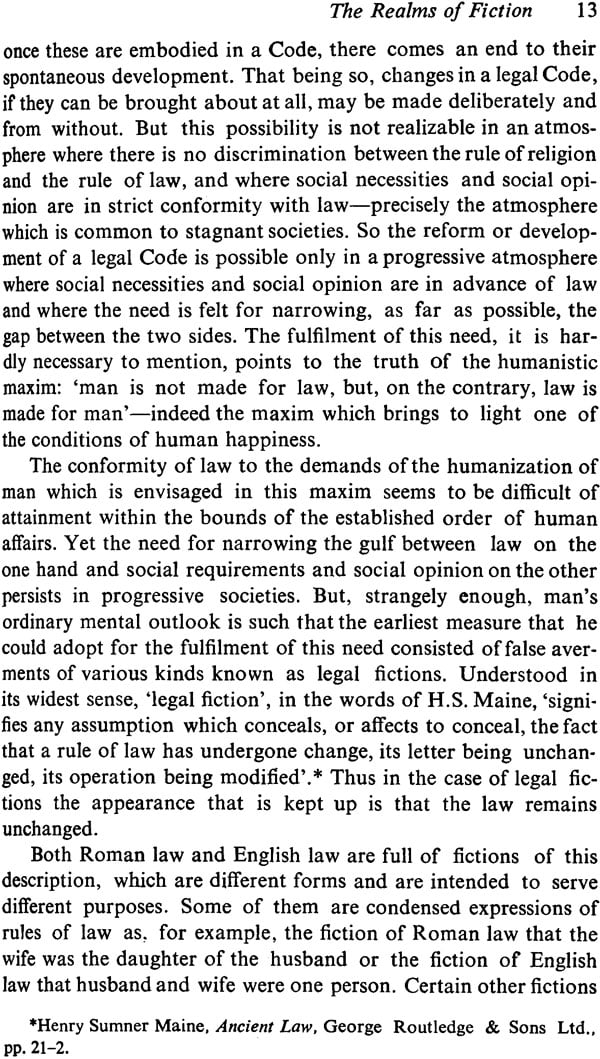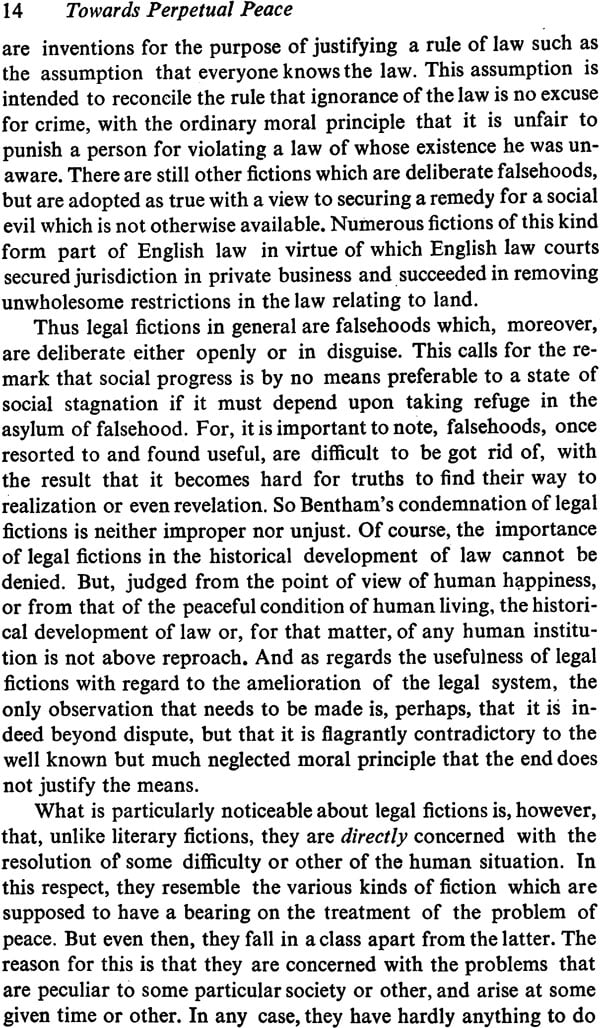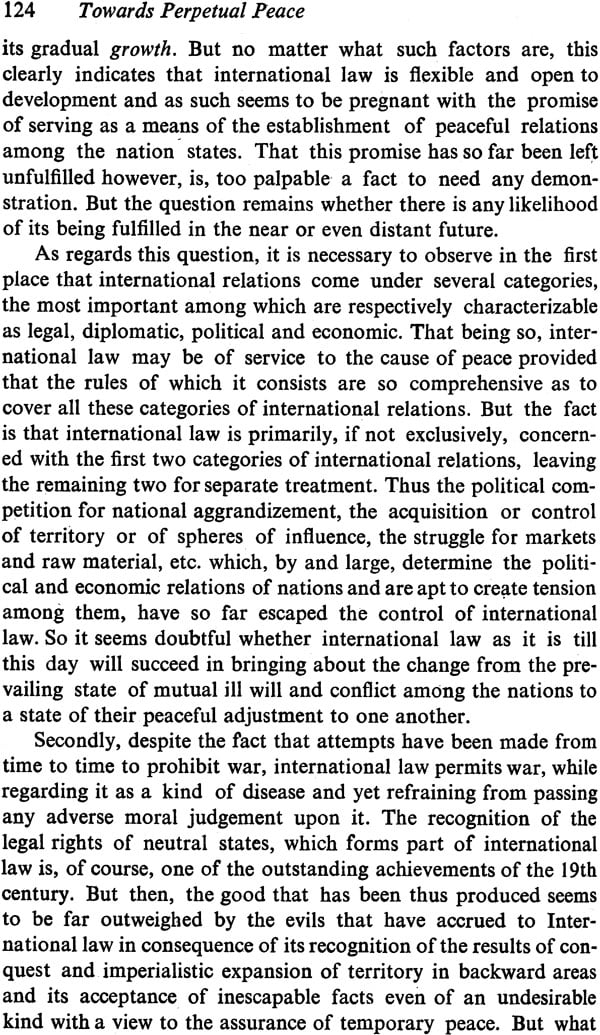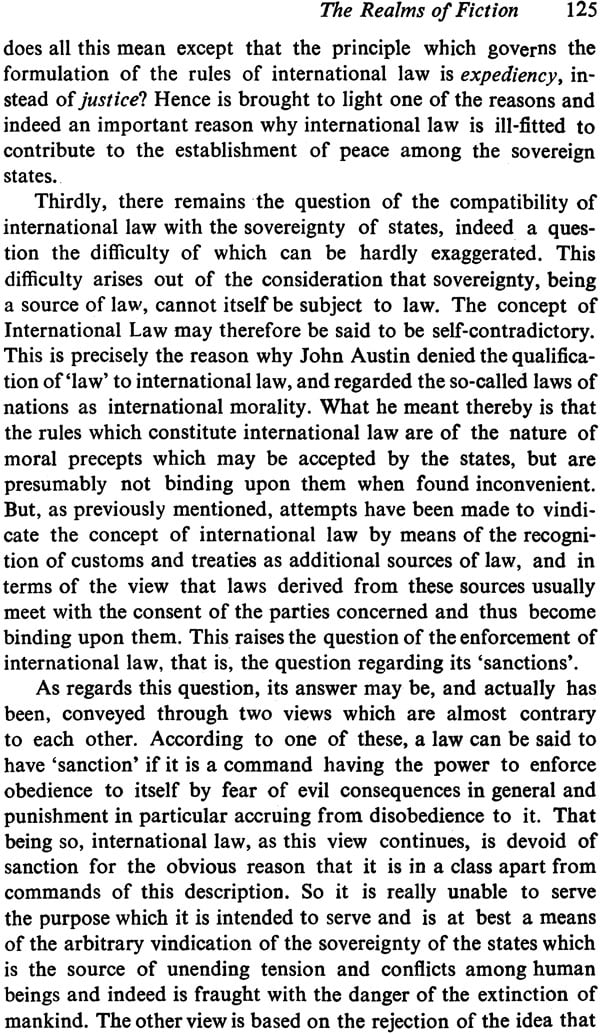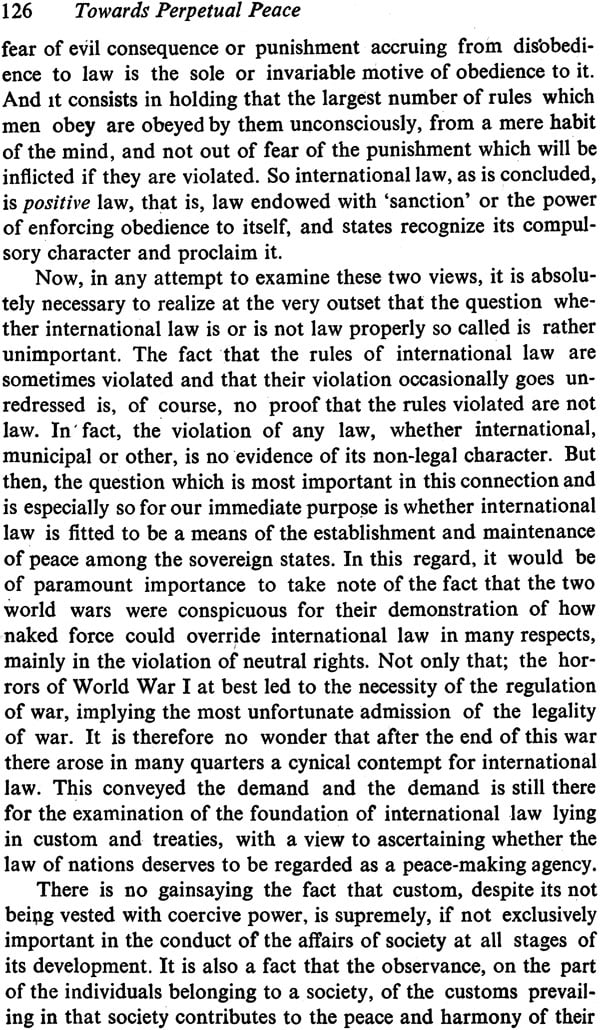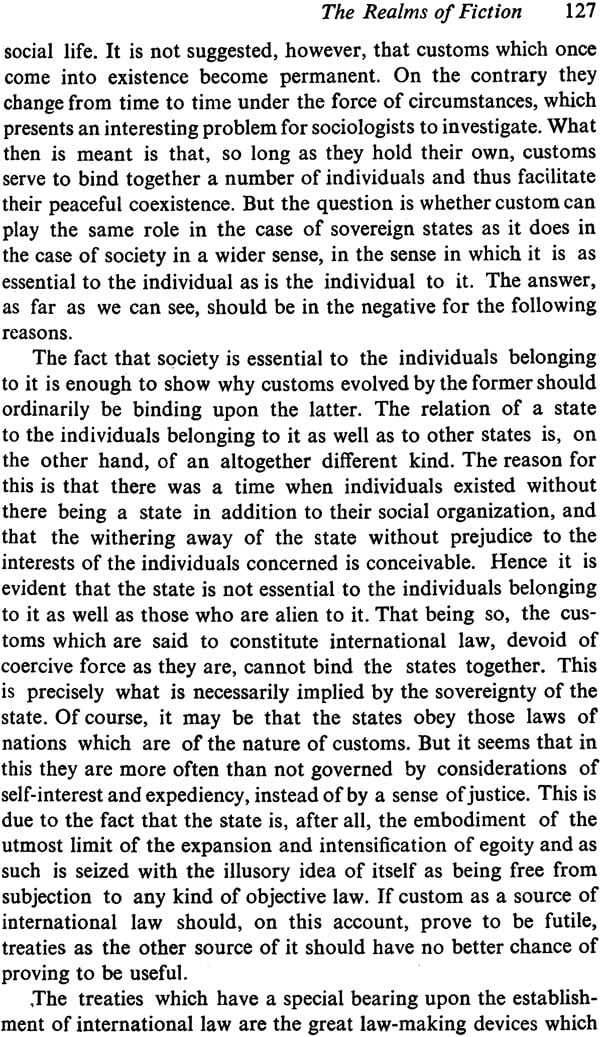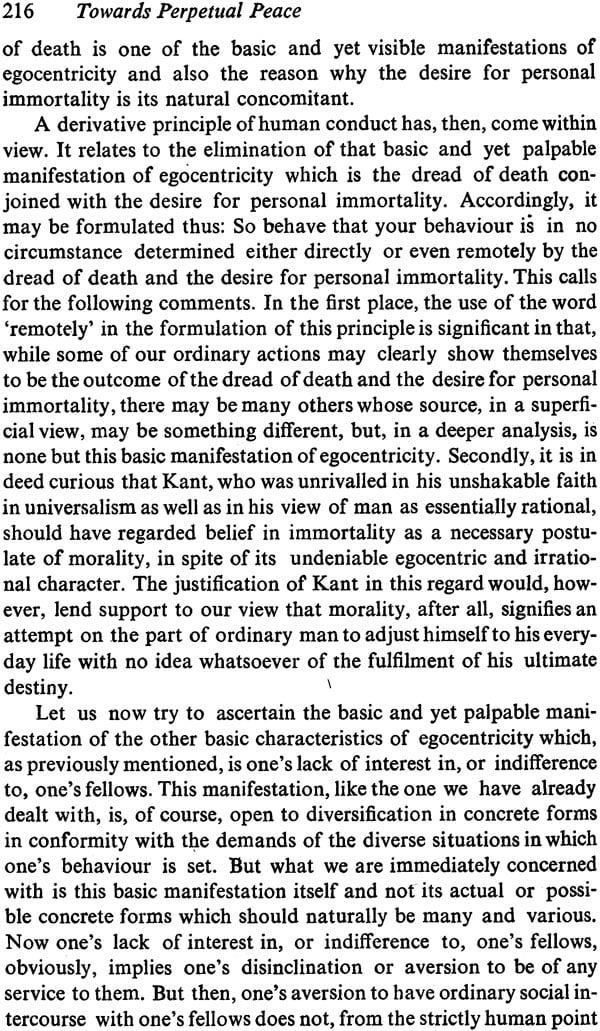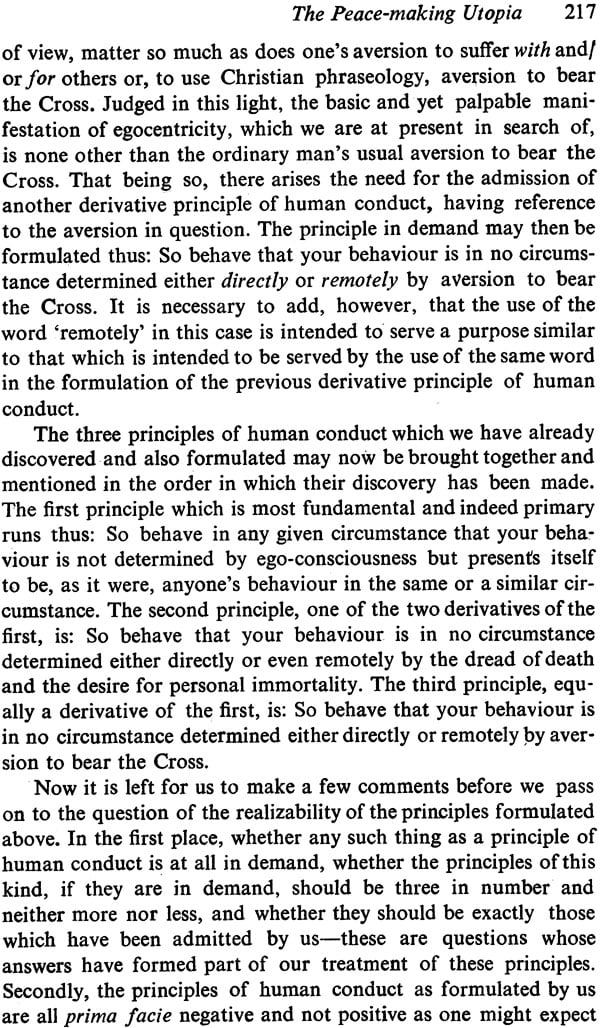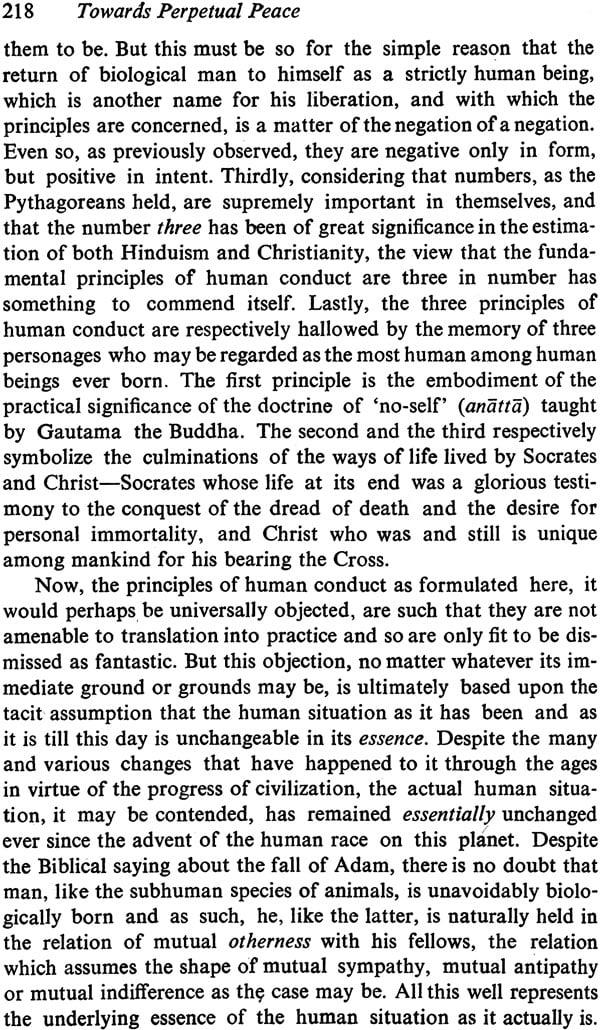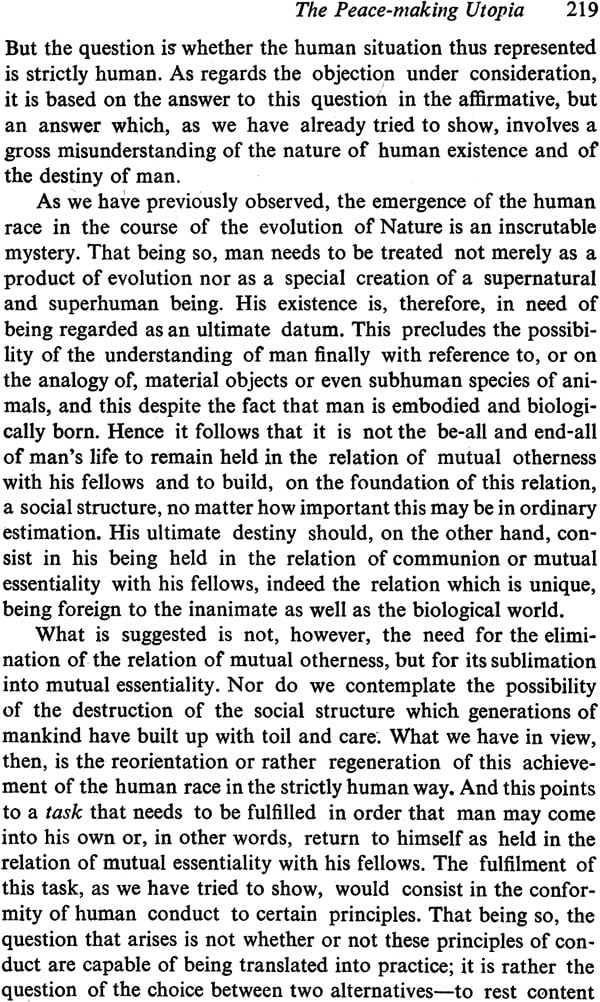
Towards Perpetual Peace
Book Specification
| Item Code: | IDG626 |
| Author: | NIKUNJA VIHARI BANERJEE |
| Publisher: | Indian Institute Of Advanced Study, Shimla |
| Language: | English |
| Edition: | 1988 |
| ISBN: | 8120805364 |
| Pages: | 245 |
| Cover: | Hardcover |
| Other Details | 8.8" X 5.7" |
| Weight | 450 gm |
Book Description
About the Book:
This Posthumously published study provides the maturest thought of the most creative Indian philosopher in recent decades. Professor Banerjee brings to bear on the problem of peace a battery of metaphysical concepts forged over a lifetime, stressing that peace is ill-conceived as the mere absence of war. In order to lay bare the metaphysical conditions of perpetual peace he subjects to a searching critique contemporary panaceas such as science and technology, statecraft, and the elaborate apparatus of twentieth century international organization. It his conclusion appears Utopian we have only to compare it with the Kantian analysis of the Ideas of Reason to glimpse what he is about. The human mind requires regulative principles and is indeed not devoid of them. In contrast to much of traditional Indian thought his orientation is refreshingly this-worldly, and above all, while most contemporary peace studies concentrate on the question of survival, Professor Banerjee offers us a wider context, that of the destiny of man. Herein lies the crucial importance of this challenging book.
About the Author:
N.V. BAJERJEE (1897-1984) was an alumnus of Calcutta University, and subsequently took a Ph.D. from London University. He taught at University of Delhi for over 42 years and was the first Professor of Philosophy to be appointed in that University. He was much in demand as a Visiting Professor abroad and his travels included a visit to Germany under the auspices of the German Academic Exchange Service. He also lectured at the Universities of Amsterdam and Groningen in the Netherlands. As a Leverhulme Visiting Fellow at Monash University in Australia in 1965 he also had the opportunity to lecture in most of the Australian universities. He later toured Bulgaria, Hungary and Poland as a nominee of the Government of India, and visited U.K. as a guest of the British Council. In 1969 he was invited to attend the inaugural session of the World Universities' Conference held under the auspices of UNESCO. His academic career included three years at the Indian Institute of Advanced Study as Professor of Philosophy and Comparative Religion. For this reason the Institute is happy to include in its publication programme this seminal work from an author who has already published widely and whose reputation as a philosopher has lost none of its luster over the years.
| Editor's Preface | v | |
| Preface | ix | |
| Introduction | 1
| |
|
| ||
| I | Preliminary Remarks | 11 |
| II | The Fiction of Golden Age and the Classical Theory of History | 15 |
| III | The Cycle Theory or the theory of Eternal Recurrence | 24 |
| IV | Nietzsche's Revival of the Doctrine of Eternal Recurrence | 29 |
| V | Judaism and the Problem of Human Destiny | 37 |
| VI | Christianity and the Problem of Human Redemption | 41 |
| VII | The Degeneration of the Religion of Jesus Under Gentile Influence | 47 |
| VIII | Paganism, Judaism and Christianity in Retrospect | 54 |
| IX | The Fiction of Heaven | 61 |
| X | The Fiction of State | 77 |
| A. Introduction | 77 | |
| B. The Origin and Function of the State | 78 | |
| C. The Emergence of Nation States | 86 | |
| XI | The Origin and Future of Modern Society | 98 |
| XII | The Russian Revolution and its Impact upon the Development of Society | 109 |
| XIII | The Fiction of Peace Institutions | 113 |
| A. The League of Nations and the United Nations Organization | 113 | |
| B. International Law and the Problem of Peace | 120 | |
| XIV | Concluding Remarks | 129
|
|
| ||
| I | Science and Man | 134 |
| II | Technology and the human Situation | 153 |
| III | Concluding Observations | 162
|
|
| ||
| I | Introduction | 167 |
| II | Towards the Solution of the Problem of Peace: The Role of Contemplation, Meditation and Yoga | 175 |
| III | The Paradox of Human Existence | 191 |
| IV | Human Existence as a Task | 201 |
| V | The Principles of Human Conduct | 209 |
| Epilogue | 222 | |
| Index | 227 | |
Click Here for More Books Published By Indian Institute of Advanced Study
